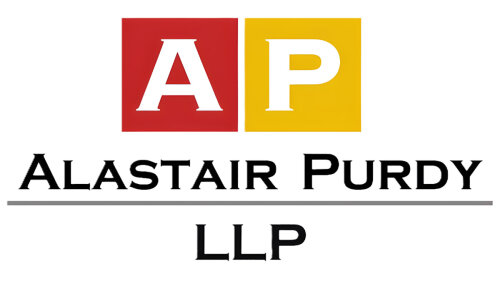Best Wage & Hour Lawyers in Galway
Share your needs with us, get contacted by law firms.
Free. Takes 2 min.
List of the best lawyers in Galway, Ireland
About Wage & Hour Law in Galway, Ireland
Wage & Hour laws in Galway, as in the rest of Ireland, are designed to ensure that employees are treated fairly in terms of compensation and working hours. These laws lay out minimum wage requirements, specify maximum working hours, regulate overtime pay, and outline conditions for leave entitlements. In Galway, like the entire Republic of Ireland, these laws are enforced to protect the rights of workers while balancing the needs of employers. This framework ensures that workplaces remain fair, safe, and productive.
Why You May Need a Lawyer
There are numerous situations in which individuals in Galway may require legal assistance regarding Wage & Hour issues. Common circumstances include disputes over unpaid wages, unclear employment contracts, violations of minimum wage regulations, inappropriate deductions from pay, inconsistencies in overtime compensation, and non-compliance with statutory break times. A lawyer can provide crucial assistance to either employees or employers in interpreting labor laws, mediating disputes, and representing parties in employment tribunals or court proceedings, if necessary.
Local Laws Overview
The Irish employment framework governs Wage & Hour laws, with several key aspects particularly relevant to Galway. The national minimum wage is the standard pay rate for workers older than 20 years, with different scales applicable to younger employees and those in training. The Organisation of Working Time Act regulates shifts, rest breaks, maximum working hours, leave entitlements, and overtime. Employers must maintain proper wage records and issue pay slips to employees, clearly detailing wage calculations and deductions.
Frequently Asked Questions
What is the current minimum wage in Ireland?
As of early 2023, the national minimum wage for adults over the age of 20 in Ireland is €11.30 per hour.
Are part-time employees entitled to the same wages as full-time employees?
Yes, part-time employees are entitled to the same hourly rate as full-time employees, provided they perform the same type of work.
How many hours is an employee legally allowed to work per week?
Under Irish law, an employee should not work more than an average of 48 hours a week over a four-month period.
What are the rules regarding breaks during work shifts?
Employees are entitled to a 15-minute break for every 4.5 hours worked and a 30-minute break for every 6 hours worked, not including lunch breaks.
Is overtime pay mandatory in Ireland?
While overtime pay is not legally required, many employment contracts include provisions for higher rates of pay for overtime hours.
What steps should I take if I believe my employer is violating Wage & Hour laws?
Document all instances of perceived violations and seek advice from a legal expert or contact the Workplace Relations Commission (WRC) for guidance.
How can I verify my employer's calculations on my payslip?
Review your contract, clarify any discrepancies with your employer, and consult a legal professional if necessary to ensure compliance.
What rights do I have if I'm an employee under training?
Employees under training may be subject to lower minimum wage rates according to their experience level and duration of training.
Can I bring a claim to the Workplace Relations Commission on my own?
Yes, employees can file claims with the WRC; however, legal representation is recommended to ensure a comprehensive understanding of the process.
What is the role of the Workplace Relations Commission in Wage & Hour disputes?
The WRC provides mediation, adjudication, and inspection services to manage and resolve labor disputes, enforce compliance, and promote harmonious industrial relations.
Additional Resources
For further assistance, consider reaching out to the following resources: the Workplace Relations Commission (WRC), which oversees compliance with employment laws; Citizen's Information, which offers advice on various social and legal issues; trade unions, which protect and negotiate workers' rights; and the Irish National Organisation of the Unemployed for employment-related support.
Next Steps
If you or someone you know requires legal assistance with Wage & Hour issues in Galway, consider the following steps: identify any breaches of contract or legal standards; gather all relevant documentation and evidence; consult with a solicitor experienced in employment law for professional guidance; and file a complaint with the Workplace Relations Commission if necessary. Legal professionals can offer invaluable assistance in these complex matters, ensuring your rights are protected and upheld.
Lawzana helps you find the best lawyers and law firms in Galway through a curated and pre-screened list of qualified legal professionals. Our platform offers rankings and detailed profiles of attorneys and law firms, allowing you to compare based on practice areas, including Wage & Hour, experience, and client feedback.
Each profile includes a description of the firm's areas of practice, client reviews, team members and partners, year of establishment, spoken languages, office locations, contact information, social media presence, and any published articles or resources. Most firms on our platform speak English and are experienced in both local and international legal matters.
Get a quote from top-rated law firms in Galway, Ireland — quickly, securely, and without unnecessary hassle.
Disclaimer:
The information provided on this page is for general informational purposes only and does not constitute legal advice. While we strive to ensure the accuracy and relevance of the content, legal information may change over time, and interpretations of the law can vary. You should always consult with a qualified legal professional for advice specific to your situation.
We disclaim all liability for actions taken or not taken based on the content of this page. If you believe any information is incorrect or outdated, please contact us, and we will review and update it where appropriate.














